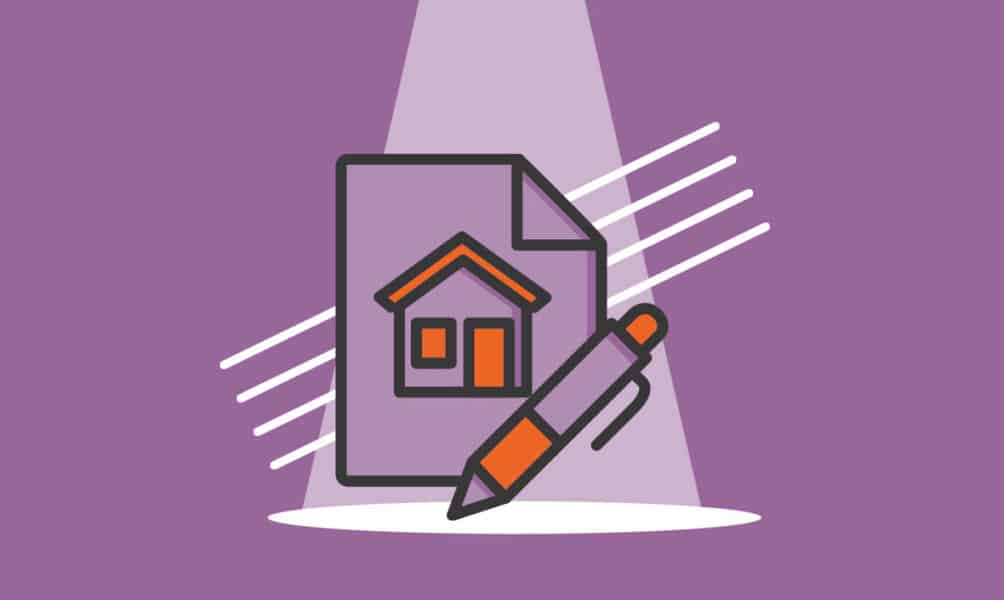If you’re starting an LLC, the business entity formation process is one of the first and most important hurdles. This step can be terribly complex ...
A Guide to Buying a Property as an LLC
Written by: Carolyn Young
Carolyn Young is a business writer who focuses on entrepreneurial concepts and the business formation. She has over 25 years of experience in business roles, and has authored several entrepreneurship textbooks.
Edited by: David Lepeska
David has been writing and learning about business, finance and globalization for a quarter-century, starting with a small New York consulting firm in the 1990s.
Published on December 10, 2021

Can a limited liability corporation (LLC) buy a house or other property? Yes indeed! An LLC is its own entity and can own property and other assets, as long as it’s allowed by your Articles of Organization.
An LLC is a business entity that offers liability protection for owners, as well as pass-through taxation, much like a sole proprietorship.
Benefits of Buying a Property as an LLC
- If you have an existing business, buying a home with your LLC can add value to your company. If you’re buying a rental property, you’ll be adding income to your business.
- In some states, putting property in your LLC can result in a tax exemption.
- An LLC provides pass-through taxation, offering an advantage over buying your property as a corporation. With a corporation, profits are taxed at the current rate for corporations (21% as of early 2022), which is significantly lower than the typical individual taxpayer rate. But keep in mind, C Corp shareholders, which includes members, must also pay taxes on their distributions (but not self-employment taxes). Thus, the C Corp is subject to what is sometimes referred to as double taxation. With an LLC, business income “passes through” the company to the members, and profits and losses are reported on their individual tax returns. The LLC itself is not taxed, which simplifies the process for members. Also, losses and operating costs of the business can be deducted personally by the members. Taxes are paid at the members’ personal tax rates, though the owners may also have to pay self-employment taxes.
- You have greater privacy if the property is owned by your LLC. People will be unable to find your name in property records since the property will not be in your name, but in the name of the LLC.
- Your home is protected as an asset. If you are sued for something related to property ownership, the personal liability protection of your LLC will protect the home. This is appealing for real estate investors who can limit their personal risk from rental properties.
- It makes it easier to invest in real estate with partners. You can start as a single-member LLC and then later add other investors as members by selling them shares of your LLC.
Disadvantages of Buying a Property as an LLC
- There are costs associated with forming an LLC. The fees for filing your Articles of Organization vary by state, from $70 all the way to $500. In most states, you also have to file annual reports, which require another fee.
- It may be more difficult for you to get financing for the property. Some types of financing, such as FHA loans, are only offered to individuals, not companies. This is because the lender knows you’re not personally liable for the debt.
- A financing company may charge a higher interest rate for an LLC over an individual.
- You’re unable to deduct the mortgage interest on your home if it’s owned by an LLC.
- You’ll be commingling business and personal assets, which in some cases can expose you to greater risk of liability.
Funding Your Property as an LLC
First, you should pay for your property, or at least make the down payment, with funds from the LLC, not your personal funds. If you use personal funds, it can cause confusion regarding who owns the property. If the assets of the LLC need to be distributed and there are other members, ownership needs to be clear. Also, if the company is sued, ownership may appear to be in a grey area.
Financing may be difficult if your business does not have a credit history of its own, and you may be charged a higher interest rate. If you are buying property as part of a real estate business, it will not be as difficult. In either case, the lender will probably request your operating agreement.
Can I Transfer My House to an LLC?
Yes, you can transfer your house to an LLC. However, if you have a mortgage on the property, such a transfer would trigger the due-on-sale clause because you are essentially selling your home to the LLC. This means you’d have to pay the entire balance due on your mortgage loan, so you’d likely be forced to take out a new loan in the name of the LLC, which as discussed, can be challenging.
Can I Live in a House Owned by My LLC?
Yes, you can in fact live in a house that is owned by your LLC — as long as your operating agreement allows it.
But this begs the question: should your LLC own your home?
The biggest drawback involves the combining of your personal and business assets. If your business owns your home, in the event that the business is sued or dissolved, your home would be a business asset and thus at risk. In the case of dissolution, assets are divided between the owners after creditors are paid, so you could be forced to sell the house to divide the proceeds.
You could also face legal liability if you are not paying rent to the LLC, and other members take issue with that. It may be considered self-dealing, and a breach of fiduciary responsibility.
It might also just be confusing to mix business and personal assets when it comes to bank accounts, home payments, accounting, and other issues.
Benefits of Owning Your Home Under Your LLC
- Privacy. Public records of your property will show the LLC name, not yours. Your identity as the property owner, and the price you paid for it, will be concealed.
- Owning a property under an LLC can have tax benefits due to pass-through taxation.
- Property owned by the business increases the value of the business, which helps if you’re hoping for a business loan or investment.
- Limited liability. If you are sued in connection with home ownership, owning it under the LLC will protect it. For example, if someone is injured on your property and they sue, they will be suing the LLC rather than you personally.
Cons of Owning Your Home Under Your LLC
- You will not qualify for a homestead exemption on property taxes if your state has one. A homestead exemption can help shield a home from creditors in the case of the death of a spouse or bankruptcy. Laws and benefits of homestead exemptions vary from state to state.
- If you are just purchasing your home or need to refinance it, it will affect the type of financing you can get. Lenders may require a higher down payment and charge higher closing costs and interest rates.
- You will pay more taxes. For property and state taxes, you will not qualify for deductions that you would have if you owned the home personally.
- Your insurance will be higher because you will be considered a tenant of the LLC.
- You will lose the capital gains deduction due to the LLC’s ownership.
- If you have existing loans on the property, the transfer to your LLC could trigger the “due on sale” clause, which means you would immediately have to pay off the loan on the house.
In Closing
Buying a property with an LLC has advantages and disadvantages that you’d be wise to consider before diving in. In most cases, it’s a better option than a corporation because of the pass-through taxation of an LLC, rather than the double taxation of a corporation.
To determine if buying a property as an LLC is right for you, you should speak with a tax advisor and an attorney to be sure you understand all the implications based on your situation. Once you’ve made your decision, forming an LLC is a simple process.
Subscribe to Our Newsletter
and gain insider access to cutting-edge business insights and trends.
Featured Resources

10 Best LLC Formation Services
Published on August 22, 2022
Read Now

How to Plan, Start, & Grow a Real Estate Business
Published on October 29, 2021
When establishing your real estate business, consider these significantfactors: Niche — Decide on the types of real estate services you willo ...
Read Now
Comments